CoQ10 Blood Pressure Interaction Calculator
Important: This calculator estimates potential blood pressure changes based on published research. Do NOT use it to replace medical advice. Always consult your doctor before taking CoQ10 with blood pressure medications.
Many people take Coenzyme Q10 to support heart health, especially if they’re on statins or high blood pressure medications. But here’s the real question: does it actually help lower blood pressure-or could it make your meds work too well? The answer isn’t simple. Some studies say yes, others say no. And the biggest risk? Not knowing how it might interact with your current treatment.
What Is Coenzyme Q10, Really?
Coenzyme Q10 (CoQ10) is a compound your body naturally makes. It’s found in every cell, especially in the heart, liver, and kidneys. Its job? Help produce energy and act as an antioxidant. Think of it like a spark plug for your mitochondria-the powerhouses inside your cells. Without enough CoQ10, your cells don’t work as efficiently.
As you age, your body makes less of it. That’s why many people turn to supplements. The most common forms are ubiquinone (oxidized) and ubiquinol (reduced). Ubiquinol is better absorbed-up to 2-4 times more than ubiquinone-so if you’re buying a supplement, look for that label.
Most supplements come in doses between 30 mg and 600 mg. Research shows that plasma levels rise significantly after 12 weeks of daily use. But here’s the catch: not all studies agree on whether that translates to lower blood pressure.
Does CoQ10 Actually Lower Blood Pressure?
Some studies say yes. A 2019 analysis of 43 clinical trials found that CoQ10 lowered systolic blood pressure by an average of 3.5 mmHg. That might not sound like much, but for someone with hypertension, even a 5 mmHg drop can reduce stroke risk by 10-15%. Some patients in those trials saw drops of 10-18 mmHg, especially with doses under 200 mg/day and when taken for more than 8 weeks.
But then there’s the Cochrane Review-the gold standard for medical evidence. That 2019 review looked at only two high-quality trials and concluded CoQ10 had no clinically meaningful effect on blood pressure. Why the difference? Many of the positive studies had small sample sizes, short durations, or poor design. One study from 1990 showed dramatic results, but it was later excluded from major reviews because the blood pressure numbers looked too perfect-statistically unlikely.
So what’s the truth? CoQ10 might help a little. But it’s not a replacement for your prescribed meds. If you’re hoping it’ll let you stop taking your blood pressure pill, that’s risky. The American Heart Association and European Society of Cardiology both say the evidence is too inconsistent to recommend it as a treatment.
How Does CoQ10 Interact With Blood Pressure Meds?
This is where things get tricky. CoQ10 doesn’t work like a drug-it doesn’t block enzymes or interfere with liver metabolism. So it’s not a classic drug interaction. But it can still change how your body responds to your meds.
Here’s what we know from real-world use:
- CoQ10 may add to the effect of ACE inhibitors, beta-blockers, and calcium channel blockers like amlodipine and lisinopril. This means your blood pressure could drop more than expected.
- One study found that 51% of patients on multiple blood pressure drugs were able to reduce or stop one of them after adding CoQ10. That’s not a coincidence-it suggests a real physiological effect.
- On the flip side, there are documented cases of people dropping to dangerously low blood pressure (like 85/55) after combining CoQ10 with their meds, especially at doses over 300 mg/day.
It’s not just about low BP. CoQ10 can also affect how your body handles blood thinners. The Merck Manual warns it may reduce the effectiveness of warfarin, leading to higher clot risk. One case report showed INR levels dropping 15-25% after patients started CoQ10.
And then there’s nifedipine. Animal studies suggest CoQ10 may increase its concentration in the blood by nearly 50%, which could lead to sudden drops in pressure or swelling in the ankles. No one knows for sure if this happens in humans-but it’s enough to be cautious.
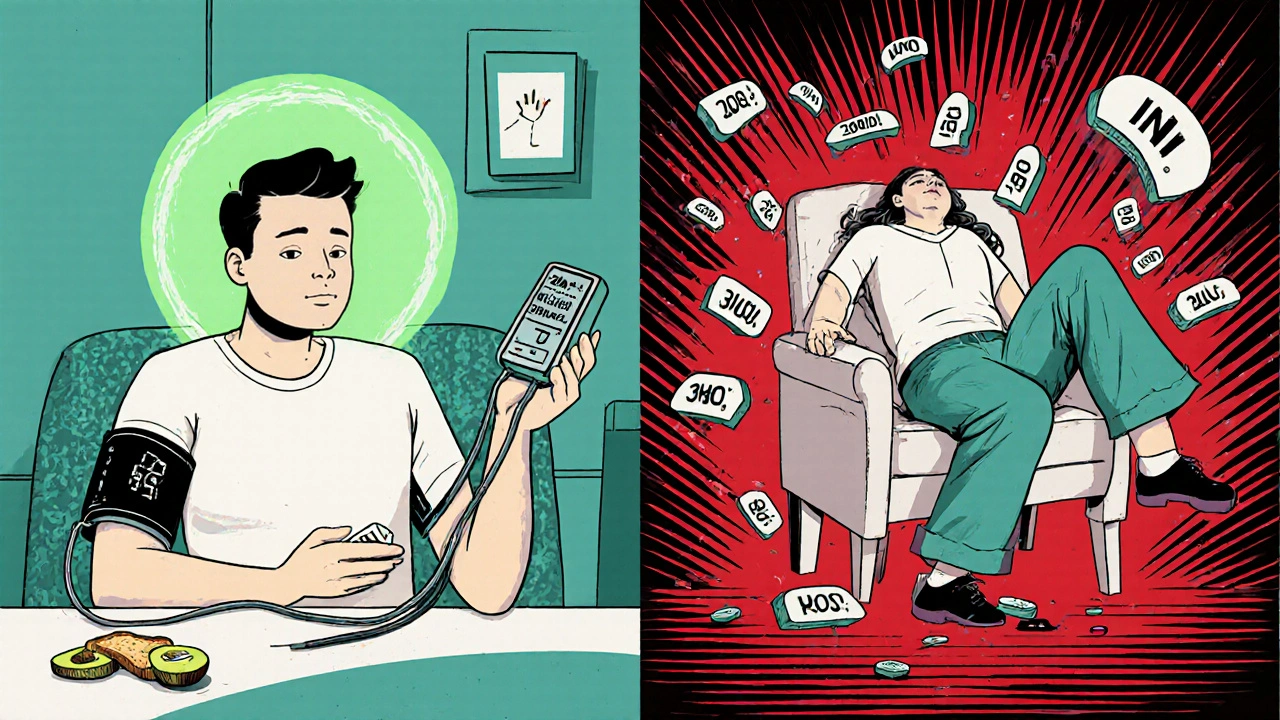
What Do Real People Experience?
Surveys and online forums tell a mixed story. On Drugs.com, 68% of users reported no issues when taking CoQ10 with their blood pressure meds. That’s reassuring. But 22% said they felt dizzy, lightheaded, or faint-classic signs of low blood pressure.
Reddit threads are full of stories like this: “After 4 months on 200 mg CoQ10, my doctor cut my amlodipine in half. My BP stayed stable.” That’s a success story. But there are others: “I took 300 mg CoQ10 with lisinopril and ended up in the ER with a systolic of 88.”
These aren’t just anecdotes. They’re red flags. The FDA recorded 17 hypotension-related events linked to CoQ10 and blood pressure meds between 2018 and 2022. Most happened when people started the supplement without telling their doctor.
How to Use CoQ10 Safely With Blood Pressure Meds
If you’re thinking about trying CoQ10, here’s how to do it without risking your health:
- Talk to your doctor first. Don’t start on your own. Especially if you’re on warfarin, nifedipine, or multiple blood pressure drugs.
- Start low. Begin with 100-200 mg/day. Higher doses aren’t necessarily better and increase risk.
- Take it with food. CoQ10 is fat-soluble. Taking it with a meal that has some fat (like eggs, avocado, or olive oil) boosts absorption.
- Monitor your blood pressure. Check it twice a week for the first month. Write down the numbers. If your systolic drops below 110 consistently, call your doctor.
- Don’t rush to change meds. Even if your pressure improves, don’t stop or reduce your prescription without medical supervision.
The Cleveland Clinic and Eureka Health both recommend waiting at least 10-14 days before expecting any effect. That’s how long it takes for CoQ10 to build up in your system. If you don’t see changes by then, it probably won’t happen.
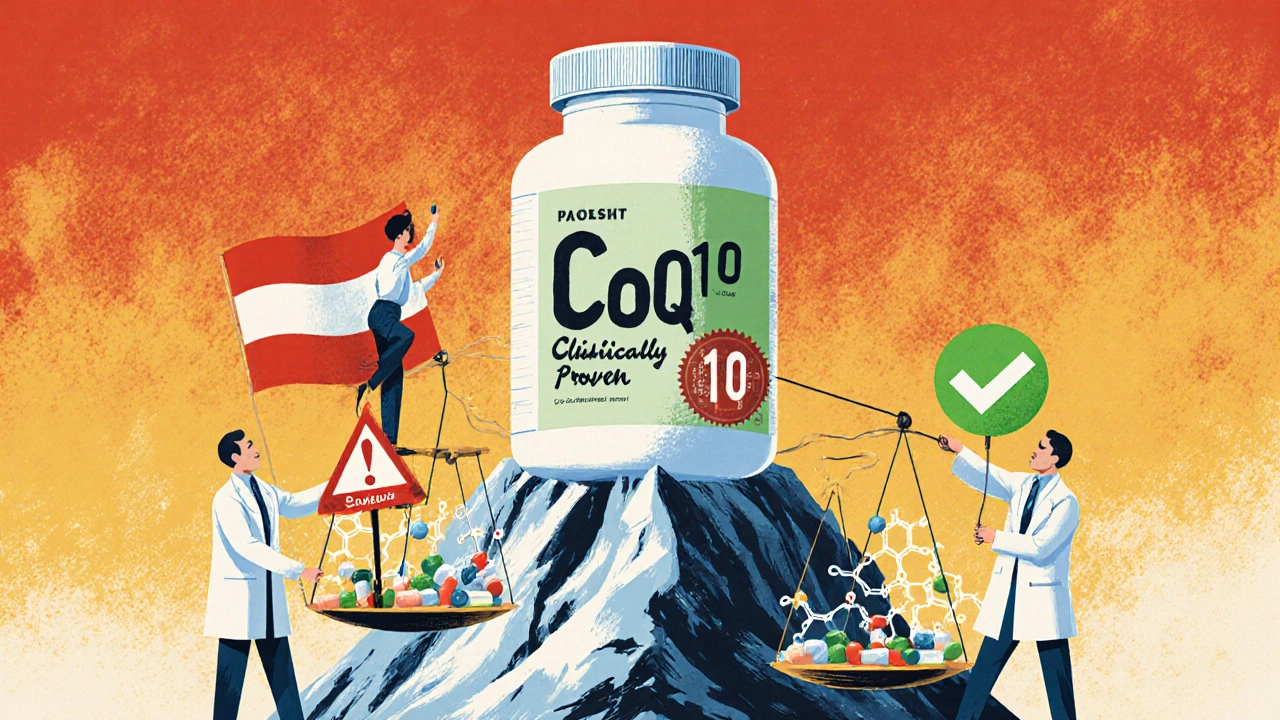
Who Should Avoid CoQ10 Altogether?
CoQ10 isn’t for everyone. Avoid it if:
- You’re on warfarin and your INR is unstable.
- You have low blood pressure already (systolic under 100).
- You’re pregnant or breastfeeding-no safety data exists.
- You’re scheduled for surgery. CoQ10 may interfere with blood pressure control during anesthesia.
- You’re taking chemotherapy drugs. Some studies suggest it might reduce their effectiveness.
Also, skip the cheap brands. Many supplements don’t contain what’s on the label. Look for third-party tested products (USP, NSF, or ConsumerLab verified).
What’s Next? The Science Is Still Evolving
Right now, CoQ10 sits in a gray zone. It’s not a drug. It’s not proven to be a reliable treatment. But it’s not harmless either. Ongoing trials like the COBRA-HTN study (expected to finish in 2026) may finally give us clear answers.
For now, the best approach is simple: treat CoQ10 like a medication, not a vitamin. It has effects. It has risks. And if you’re on blood pressure drugs, you need to manage it carefully.
Don’t assume it’s safe because it’s “natural.” The body doesn’t care if something is plant-based or synthetic-it reacts to the chemistry. CoQ10 changes how your system handles pressure. That’s powerful. And powerful things need respect.
Can Coenzyme Q10 replace my blood pressure medication?
No. CoQ10 is not a replacement for prescribed blood pressure medications. While some studies show it may help lower blood pressure slightly, the effect is modest and inconsistent. Stopping your medication without medical supervision can be dangerous and increase your risk of heart attack or stroke. Always consult your doctor before making any changes to your treatment plan.
How long does it take for CoQ10 to lower blood pressure?
It typically takes 10 to 14 days for CoQ10 to build up in your system enough to show any effect on blood pressure. The full benefit may take 4 to 8 weeks. Studies show longer durations (more than 8 weeks) result in more consistent reductions. Don’t expect immediate results-patience and consistent dosing are key.
Is CoQ10 safe to take with statins?
Yes, and many people take it specifically to help with statin side effects like muscle pain or weakness. Statins lower your body’s natural CoQ10 levels, so supplementing may help. There’s no known dangerous interaction between CoQ10 and statins. However, always inform your doctor if you’re taking both, especially if you’re also on blood pressure meds.
Can CoQ10 affect my INR if I’m on warfarin?
Yes. CoQ10 may reduce the effectiveness of warfarin, leading to lower INR levels and a higher risk of blood clots. Case reports show INR can drop by 15-25% after starting CoQ10. If you’re on warfarin, your doctor will need to monitor your INR more closely when you begin or stop CoQ10. Never start or stop this supplement without discussing it with your provider.
What’s the best dose of CoQ10 for blood pressure?
Most studies showing benefit used doses between 100 mg and 200 mg per day. Higher doses (300 mg or more) don’t appear to offer more benefit and may increase the risk of low blood pressure, especially when combined with medications. Start with 100 mg daily, taken with a meal containing fat, and only increase under medical supervision.
Should I take ubiquinol or ubiquinone?
Ubiquinol is the reduced, active form of CoQ10 and is absorbed 2-4 times better than ubiquinone, especially in older adults or those with absorption issues. If you’re over 40 or have trouble absorbing supplements, ubiquinol is the better choice. But it’s more expensive. For most people under 40, ubiquinone works fine at slightly higher doses.
Final Thought: Don’t Guess. Test and Track.
If you’re considering CoQ10 because you want to feel better or reduce your meds, that’s understandable. But your blood pressure isn’t something to experiment with. Track your numbers. Talk to your doctor. Don’t let marketing claims or Reddit stories override medical advice. The goal isn’t to find a magic supplement-it’s to keep your heart safe. And that means working with your care team, not against it.

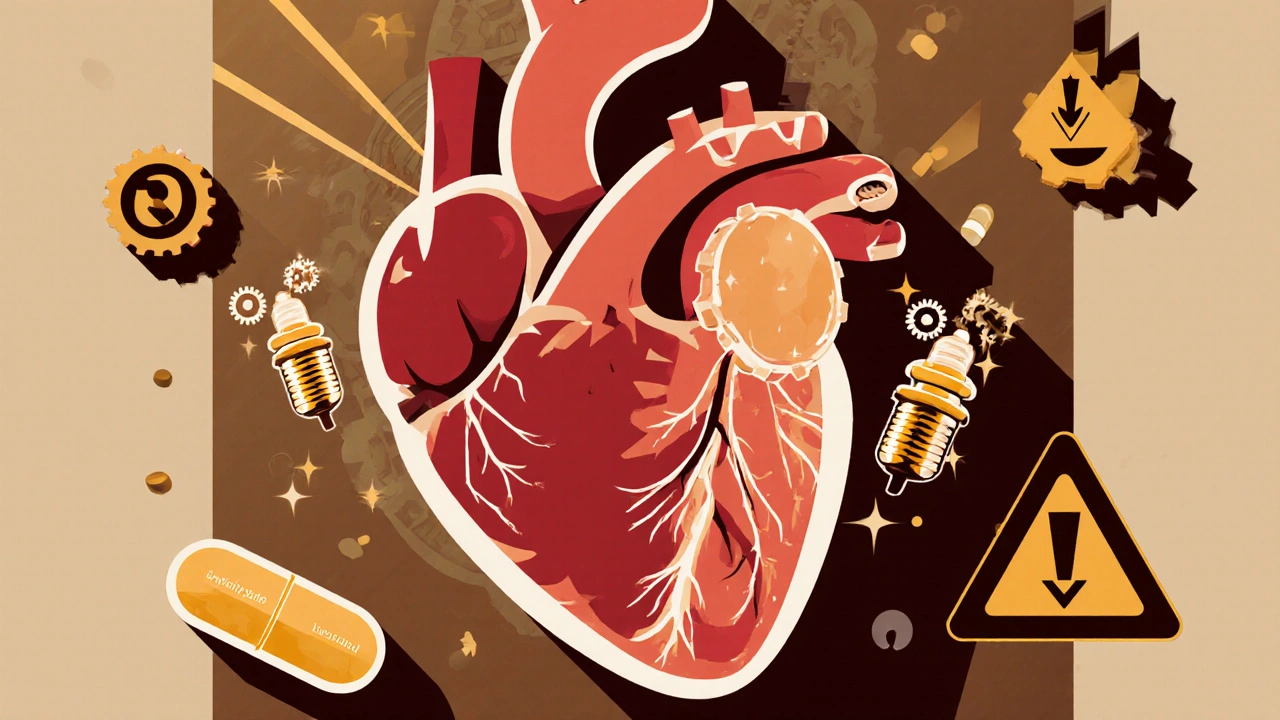
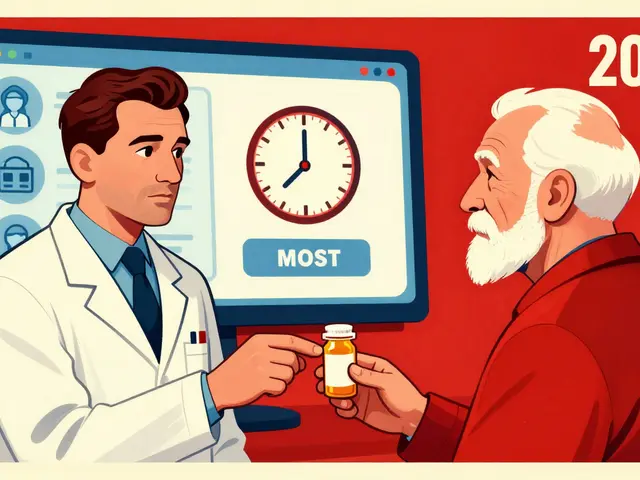
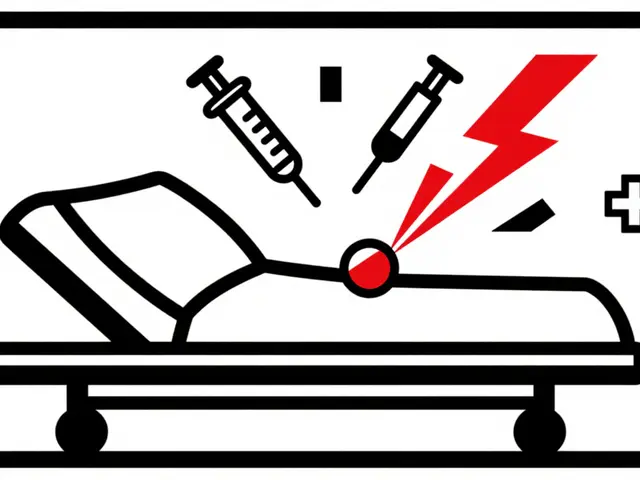
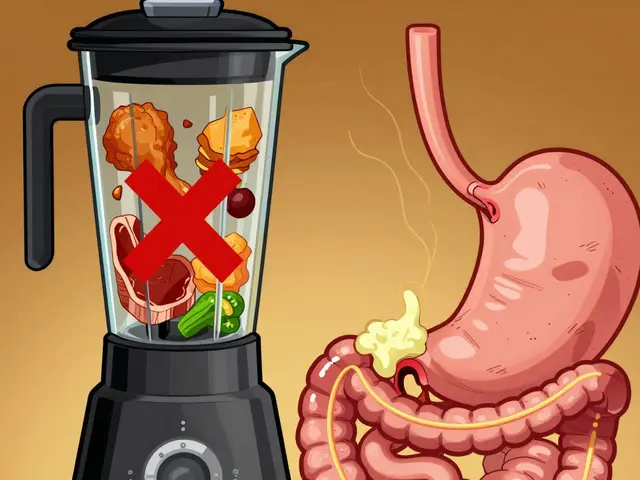

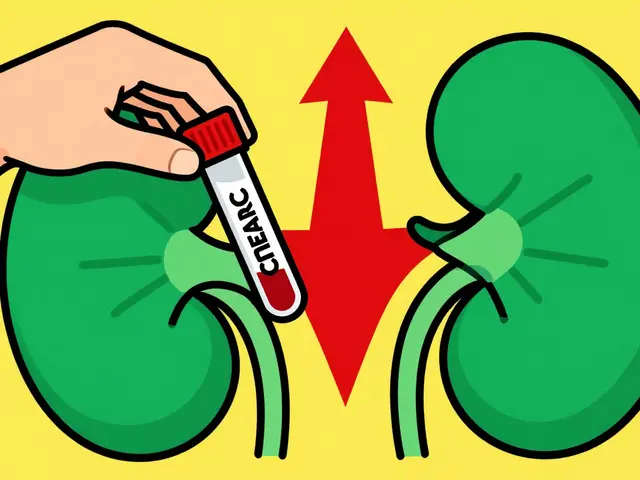
Angela Gutschwager
November 19, 2025 AT 13:56CoQ10? Nah, just take your meds and stop chasing magic pills. 😒
Christopher K
November 19, 2025 AT 17:21Oh wow, another ‘natural remedy’ guru trying to sell snake oil to hypertensives. 🤡
Let me guess - you’re also drinking apple cider vinegar for your atrial fibrillation? The FDA’s got 17 hypotension cases on record and you’re still scrolling through Reddit like it’s a wellness cult meetup. Get a real doctor, not a YouTube biohacker.
Richard Risemberg
November 20, 2025 AT 22:41CoQ10 isn’t magic - it’s biochemistry. Your mitochondria don’t care if it’s ‘natural’ or ‘synthetic,’ they just want the electrons. The fact that it can nudge BP down slightly in some folks means it’s doing *something*. But here’s the kicker: it’s not a replacement, it’s a modifier. Like adding salt to soup - it changes the flavor, but doesn’t replace the broth.
And yeah, if you’re on warfarin? That’s not a ‘maybe,’ that’s a ‘call your anticoag clinic NOW.’ The INR drop isn’t folklore - it’s peer-reviewed. Treat it like insulin, not a vitamin gummy.
Frank Dahlmeyer
November 21, 2025 AT 04:49Look, I get it - we all want the easy fix. No more pills, no more doctor visits, just pop a capsule and boom - normal BP. But here’s the truth: your body isn’t a video game where you can just grind for stats. CoQ10 might help a little, but only if you’re already doing the basics - sleep, movement, low sodium, no bingeing on pizza at 2 a.m.
And if you’re thinking of ditching your lisinopril because some guy on Reddit said his BP dropped? Bro. That’s not health. That’s gambling with your heart. I’ve seen too many people end up in the ER because they ‘felt fine’ and stopped their meds. Don’t be one of them. CoQ10? Fine as a sidekick. Not the hero.
Timothy Reed
November 22, 2025 AT 07:12It’s important to recognize that while CoQ10 may have modest effects on blood pressure, the clinical significance is inconsistent across populations. The Cochrane Review remains the most rigorous synthesis of available data, and its conclusion - lack of clinically meaningful impact - should guide clinical decision-making. That said, the potential for additive hypotensive effects when combined with antihypertensives is well-documented in case reports and warrants caution. Patients should be advised to monitor BP closely and disclose all supplements to their providers. Evidence-based practice requires balancing patient autonomy with safety.
Andy Feltus
November 22, 2025 AT 23:46So let me get this straight - we’ve got a compound our bodies make, that’s been around since before dinosaurs, and now it’s a ‘dangerous supplement’ because some guy took 300mg with amlodipine and passed out?
Meanwhile, we prescribe beta-blockers to people who can’t run up a flight of stairs without wheezing, and call that ‘medicine.’
CoQ10 doesn’t ‘interact’ with your meds - it just does what your body used to do naturally before statins turned your mitochondria into a ghost town. The real scandal? That we’ve turned our biology into a profit-driven checklist instead of a conversation. You don’t need a ‘protocol’ - you need a doctor who listens. But hey, at least the supplement aisle looks pretty.
Zac Gray
November 24, 2025 AT 21:39Let’s be real - the reason CoQ10 gets hyped is because Big Pharma doesn’t own it. You can’t patent a molecule your body already makes, so no one’s funding massive RCTs. That’s why we’re stuck with 1990s studies and anecdotal Reddit threads. But here’s what I’ve seen in practice: people on statins with muscle pain? CoQ10 helps. People on multiple BP meds who are borderline hypotensive? CoQ10 can push them over the edge. It’s not about ‘good’ or ‘bad’ - it’s about context. Your body’s a system, not a switch. You don’t turn CoQ10 on like a light - you tune it like a radio. Start low. Monitor. Talk to your doc. And for god’s sake, don’t trust a guy who says ‘I cured my hypertension with turmeric and hope.’
Marjorie Antoniou
November 26, 2025 AT 02:39I’ve had patients come in crying because their doctor told them to stop CoQ10 - but they’d been taking it for years and felt better. Others came in pale and dizzy after doubling their dose because ‘it worked so well.’ Neither story is wrong. Both are real. That’s why I don’t tell people what to do - I help them track. BP logs. Symptom journals. Lab numbers. If CoQ10 helps you feel less fatigued and your BP stays stable? Cool. If it makes you lightheaded? Stop. No guilt. No judgment. Just data. You’re not failing if you need meds. You’re not a hero if you quit them. You’re just human. And your heart deserves better than internet noise.
Codie Wagers
November 28, 2025 AT 01:01Let me be the first to say it: CoQ10 is the placebo of the supplement world. The ‘modest BP reduction’? That’s the same ‘effect’ you get from drinking green tea and believing in yourself. The Cochrane Review didn’t just say ‘no evidence’ - it said ‘no meaningful evidence.’ And yet people cling to it like a security blanket because they don’t want to face the truth: their lifestyle is the problem. Not their meds. Not their CoQ10. Their 12-hour workdays, their soda habit, their ‘I’ll exercise tomorrow’ mentality. Stop outsourcing your health to a pill. Fix your life. Then maybe you won’t need any of this.
Derron Vanderpoel
November 28, 2025 AT 03:20ok so i took 200mg of ubiquinol for 3 months and my bp went from 145/92 to 128/82 and my doc was like ‘wait you’re not on meds?’
but then i got sick and stopped for 2 weeks and it went back up so i started again and now i’m at 130/84
idk if it’s the coq10 or if i’m just sleeping better now
but i’m not takin it off till my doc says so
also it’s expensive but worth it if you’re tired all the time
ps my wife says i smell like a gym sock now but i think that’s just my socks
Nick Lesieur
November 29, 2025 AT 13:35So CoQ10 lowers BP? Cool. So does not eating salt. Or sleeping. Or not being a stress-ball who scrolls doomscrolling at 3am.
But hey, let’s just slap a $30 bottle on the shelf and call it ‘heart support’ - because clearly, the real problem isn’t our culture of overwork and processed food, it’s that we didn’t take enough supplements.
Next up: ‘Chlorophyll for cholesterol’ and ‘Milk Thistle for your divorce.’
Meanwhile, your actual doctor is still waiting for you to show up for your appointment. Just saying.
Steve and Charlie Maidment
November 30, 2025 AT 05:58Okay, but here’s the thing nobody talks about - CoQ10 doesn’t just affect BP. It affects your energy. I’ve been on statins for 12 years. I was so tired I could barely walk to the mailbox. Started CoQ10 at 100mg. Two weeks later, I mowed my lawn. No joke. My wife cried. My doctor shrugged and said, ‘Well, it’s not harmful.’
So maybe the ‘no clinically meaningful effect’ crowd is missing the point. It’s not about dropping 10 points on a sphygmomanometer. It’s about being able to play with your grandkids without gasping. If that’s not a win, I don’t know what is.
And yeah, I check my BP. And yeah, I don’t mess with warfarin. But I’m not gonna stop feeling human because some meta-analysis says ‘insufficient evidence.’